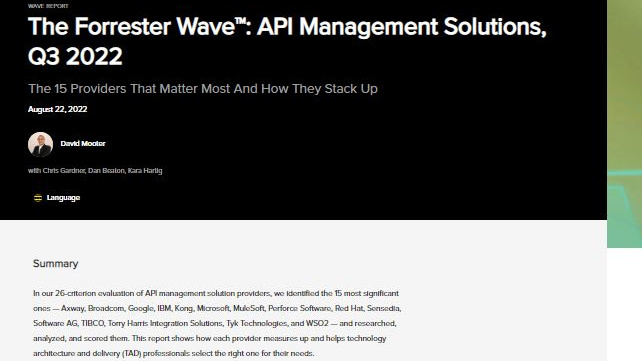DC AG launches algorithmic bias bill
Law would levy $10,000 per infection for algorithmic bias


DC Attorney General Karl A Racine has proposed legislation that would prevent algorithmic discrimination. The Stop Discrimination by Algorithms Act (SDAA) would prevent companies from making automated decisions that discriminate against marginalized groups in the District.
The Center of Privacy and Technology and Communications and Technology Law Clinic (both part of Georgetown University Law Center) helped draft the bill, in conjunction with civil rights nonprofit Color of Change.
RELATED RESOURCE

Are you ready for the hybrid workplace?
Invest in headsets and webcams to drive worker productivity
The Act forbids discrimination by algorithms that make decisions about credit, education, housing, employment, and public services. Companies must also inform individuals about how they use algorithms to make those decisions.
Organizations must document how they build their algorithms and how they make decisions. They must file annual audit reports with the Attorney General in which they check their algorithms for discrimination.
The proposed legislation comes with teeth, as the it allows the Attorney General to penalize companies that violate the rules by up to $10,000 per violation. It also permits private lawsuits.
The text of the bill warned that algorithmic decision-making systems that don't account for bias can harm marginalized groups. "Despite their prevalence and the potential problems they pose, algorithms are poorly understood by most individuals, in part because of the many entities involved and the lack of accountability among those entities," it said.
The move prompted support from organizations and individuals including Timnit Gebru, the AI researcher who complained that Google silenced her concerns about its AI algorithms.
Get the ITPro daily newsletter
Sign up today and you will receive a free copy of our Future Focus 2025 report - the leading guidance on AI, cybersecurity and other IT challenges as per 700+ senior executives
"At this point it should be clear that multinational corporations will not self regulate," said the scientist, who this month launched the Distributed Artificial Intelligence Research Institute. "To the contrary, they push out people with the slightest criticism of their proliferation of harmful systems. Without laws requiring companies to assess the potential for discriminatory impact of their algorithms, what they do instead is eject people like me who attempt to do that internally, even though this was literally in my job description."
The proposed legislation mirrors efforts at the federal level. In 2019, Democrats introduced an Algorithmic Accountability Act that would have pressed the Federal Trade Commission to create rules for assessing bias in automated systems. In May this year, Democrats tried again with the Algorithmic Justice and Online Platform Transparency Act of 2021.
The FTC has already warned organizations to use AI responsibly, threatening potential action for those that fail to do so. It has issued guidance for companies to follow.
Danny Bradbury has been a print journalist specialising in technology since 1989 and a freelance writer since 1994. He has written for national publications on both sides of the Atlantic and has won awards for his investigative cybersecurity journalism work and his arts and culture writing.
Danny writes about many different technology issues for audiences ranging from consumers through to software developers and CIOs. He also ghostwrites articles for many C-suite business executives in the technology sector and has worked as a presenter for multiple webinars and podcasts.
-
 Should AI PCs be part of your next hardware refresh?
Should AI PCs be part of your next hardware refresh?AI PCs are fast becoming a business staple and a surefire way to future-proof your business
By Bobby Hellard Published
-
 Westcon-Comstor and Vectra AI launch brace of new channel initiatives
Westcon-Comstor and Vectra AI launch brace of new channel initiativesNews Westcon-Comstor and Vectra AI have announced the launch of two new channel growth initiatives focused on the managed security service provider (MSSP) space and AWS Marketplace.
By Daniel Todd Published
-
 Supply chain services, 2023
Supply chain services, 2023whitepaper Covering the leading service providers in enterprise supply chain innovation
By ITPro Published
-
 Transforming the aftermarket supply chain
Transforming the aftermarket supply chainwhitepaper with IBM’s cognitive enterprise business platform for Oracle Cloud and generative AI
By ITPro Published
-
 The Forrester Wave™: API management solutions
The Forrester Wave™: API management solutionsWhitepaper The 15 providers that matter the most and how they stack up
By ITPro Published
-
 A green future: How the crypto asset sector can embrace ESG
A green future: How the crypto asset sector can embrace ESGWhitepaper Understanding the challenges and opportunities of new ESG standards and policies
By ITPro Published
-
 A guide to ESG reporting frameworks
A guide to ESG reporting frameworksWhitepaper Guidelines to assist with your approach to ESG reporting
By ITPro Published
-
 Ensuring compliance with the National Bioengineered Food Disclosure Standard (NBFDS)
Ensuring compliance with the National Bioengineered Food Disclosure Standard (NBFDS)Whitepaper How food manufacturers can enhance traceability with technology to be compliant
By ITPro Published
-
 Nine steps to IT audit readiness
Nine steps to IT audit readinessWhitepaper How technology can help win back your time and reduce IT risk
By ITPro Published
-
 KRI basics for IT governance
KRI basics for IT governanceWhitepaper How information technology & information security can implement this crucial part of risk management
By ITPro Published